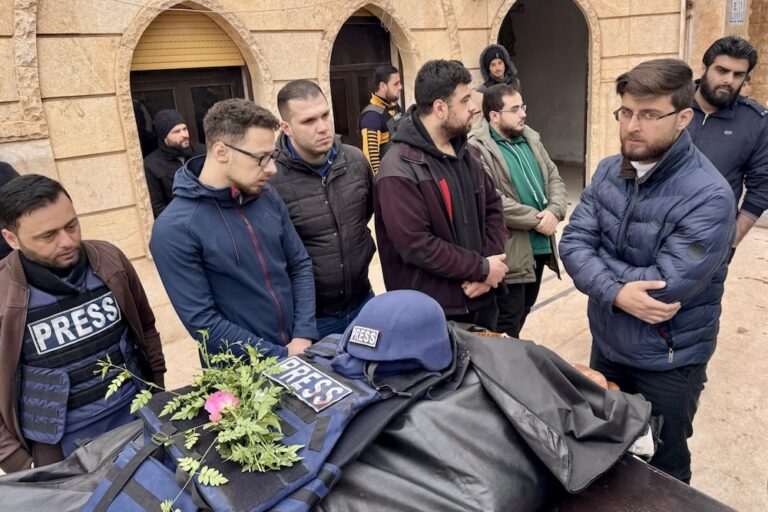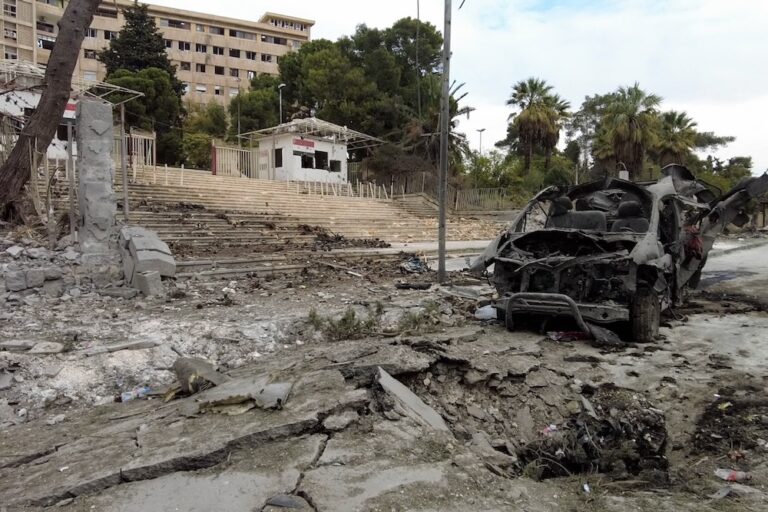RSF calls on the authorities to abandon an Internet communications bill that was drafted at the behest of the prime minister.
(RSF/IFEX) – 6 November 2010 – Reporters Without Borders calls on the Syrian authorities to abandon an Internet communications bill that was drafted at the behest of Prime Minister Mohammad Naji Otri and was approved by the cabinet last week. If adopted by parliament, it is likely to have a serious impact on online free expression, which is already limited in Syria.
Syria is on the Reporters Without Borders list of “Enemies of the Internet” because it has blocked hundreds of websites and hounds its netizens. Nonetheless, several news websites have emerged in recent years and the bill is clearly designed to impose additional restrictions on the flow of online information.
Two of the bill’s provisions are particularly disturbing. One would allow the authorities to try online journalists before criminal courts and impose long jail sentences. Reporters Without Borders advocates the decriminalization of all media offences.
The other provision, contained in article 41, would allow the police or any other judicial auxiliary to investigate and arrest online journalists suspected of breaking the law. Ayman Abdel-Nour, the head of the http://www.all4syria.org website, which is blocked in Syria, told AFP he though the bill was “very severe” as it would “allow police to enter editorial offices to arrest journalists and seize their computers.”
The charge of “publishing mendacious reports liable to weaken the nation’s spirit” is already often used by the authorities against journalists and netizens. The blogger Karim Arbaji, for example, was sentenced to three years in prison in 2007 on this charge.
Nidal Maalouf, the editor of the pro-government news website Syria-News, said the bill would place online media under the information ministry’s supervision, which would make it harder to criticise the government and would restrict freedom of expression.
Last year, Syria began stepping up censorship of sensitive subjects on the Internet and going after netizens who dared to express themselves freely online. Many topics ignored by the print media, such as a new ban on wearing the niqab (full-face veil) in the universities, have been debated on the Internet.
The hundreds of websites currently blocked including social-networking sites, blog platforms, sites that criticise the political situation in Syria or religious matters, “obscene” sites, those dealing with Syria’s Kurdish minority and those based in Israel.
Two netizens, Kamal Cheikhou ben Hussein and Tal Al-Mallouhi, are currently detained. Legislation already in place allows the authorities to try a suspect before a military court for a “crime constituting a global danger,” an extremely vague charge that can cover a multitude of activities. The existing press law also bans websites from posting any political content. Bloggers face heavy fines or jail sentences if they are convicted of defamation.
Syria was ranked 173rd out of 178 countries in the 2010 Reporters Without Borders press freedom index, a fall of eight places from its ranking in the 2009 index.


